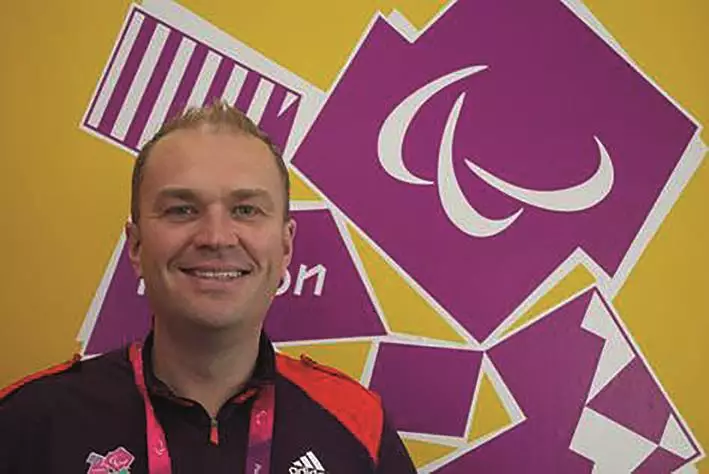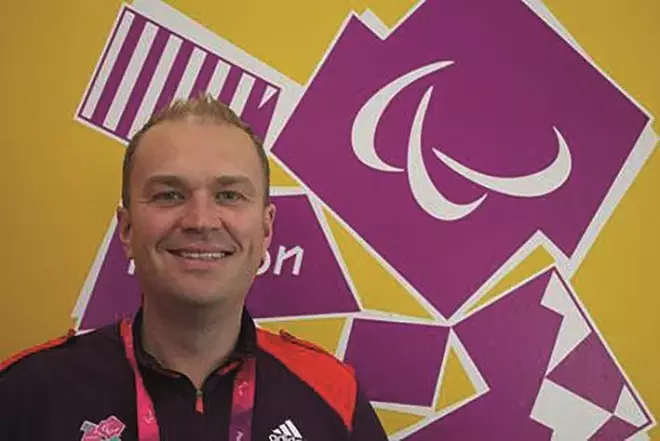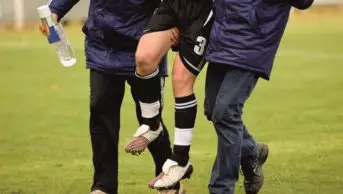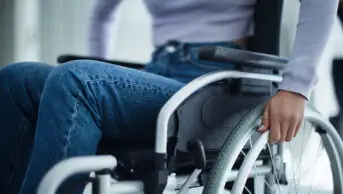

Mark Stuart is the pharmacist for the International Olympic Committee (IOC) Medical Commission and European Olympic Committees (EOC) Medical and Anti-Doping Commission.
What is your current role and how did you get there?
I was appointed to my current role shortly after the London 2012 Olympic and Paralympic Games, where I was the superintendent pharmacist for the organising committee. Since 2012, I have represented pharmacy for the International Olympic Committee (IOC) at the Sochi 2014 Winter Olympics and I’m currently involved in the planning and delivery of pharmacy services for Rio 2016.
I first became involved with sports pharmacy after postgraduate studies in clinical drug dependence, which focused on drug abuse in sport. I was a pharmacist for the Sydney 2000 Olympic Games and then went on to become the superintendent pharmacist for the Manchester 2002 Commonwealth Games.
Since then, I have worked on pharmacy and anti-doping services for the Athens 2004 Olympics and coordinated anti-doping operations for ice hockey events during the Turin 2006 Winter Olympics. During the Beijing 2008 Olympics I trained the hundreds of healthcare professionals working at the games on anti-doping, drugs in sport and safe medicines management.
I have worked at subsequent Commonwealth Games, including Melbourne 2006, and, most recently, as the superintendent pharmacist for Glasgow 2014. During 2015 I led the pharmacy services for the inaugural European Games in Baku, Azerbaijan. This presented a unique opportunity to develop a pharmacy governance framework for these new games, which will now be staged every four years.
What do you find most interesting about your current role?
The most interesting part is the challenge of setting up bespoke city-wide pharmacy services for sporting events in various countries, and learning about the local laws and supply chains within which to design these services. The pharmacy regulations have differed greatly between some of the recent games I have worked on, as have many of the pharmacy practice elements. For example, in Russia, the controlled drug laws and regulations are different to those in the UK and the importation and customs requirements for medicines being transported into Brazil are also different.
The range of drugs used in emergency protocols can differ between countries
I also contribute to the selection and management of drugs used by emergency services at games, and the medicines kept on the ambulances and on the field of play at different competition venues. The range of drugs used in emergency protocols can differ between countries and I find it fascinating to learn about new treatment regimens and emergency protocols when I arrive in a host country.
What specific tasks will you be doing during Rio 2016?
In the run up to Rio 2016 I have been closely involved in a number of activities, including selecting 300 medicines for the formulary, advising on the design of the premises, establishing a governance framework for the pharmacy service and providing training to pharmacists and other healthcare professionals on drugs in sport. I have visited Rio in 2015 during the test events to advise on the safe management of drugs at the competition venues for rowing and at beach volleyball in a stadium built on Copacabana Beach.
During the Olympic Games in August 2016, I will be responsible for overseeing the governance aspects of the pharmacy services on behalf of the IOC Medical Commission Games Group. I will also monitor patterns of medicines usage by athletes and spectators to assist public heath surveillance.
Additionally, I will inspect doping control stations at Olympic venues to ensure that the operations are being run in accordance to the World Anti-Doping Agency (WADA) regulations, and support athletes undergoing the IOC Therapeutic Use Exemption process if they require banned drugs for legitimate therapeutic use.
At London 2012 we had 100 volunteer pharmacists working across three athlete village pharmacies over the Olympics and Paralympics
What might others find surprising about your role?

People may not appreciate the scale of pharmacy services required for Olympic and Paralympic Games. For example, at London 2012 we had 100 volunteer pharmacists working across three athlete village pharmacies over the Olympics and Paralympics. We designed six pharmacies from the ground up to serve the three athlete villages, media village, and spectator pharmacies in the Olympic Park. In addition, there were more than a dozen community pharmacies that served the athletes in five regional cities (Manchester, Glasgow, Newcastle, Coventry and Cardiff) during the Olympic football events and the team of people travelling across the UK with the Olympic torch relay.
Medicines provision and the safe management of drugs need to be delivered in a wide array of settings — from medical teams on boats at sailing events through to mobile medical teams on snowmobiles and helicopters during Winter Olympics. In addition, there are usually more than 200 medical rooms for athletes and spectators stocked with medicines across every competition venue.
What do you find most difficult about your role and why?
Dealing with athletes who test positive for banned drugs at games is particularly tough. If this happens during the games, the athlete is informed as soon as our team receives the laboratory results, then a formal hearing and disciplinary process occurs soon after.
The impact of a positive doping test affects so many people. It can be devastating news for the country, family and other team members, and can unfairly take the moment of glory of winning a medal away from clean athletes who competed without drugs. It is even more tragic when the athlete tests positive for a substance that they may have inadvertently taken — the rules of strict liability mean that the athlete is still sanctioned under the WADA rules.
Education about anti-doping is at the core of the training programme for pharmacists and other healthcare providers in the games environment to ensure that they can support the athlete to avoid banned drugs. At each games the pharmacy team supports athlete education outreach services, promoting doping-free sport to the athletes who are participating.
What are your professional goals for the next year?
I will be working hard to ensure that international pharmacy standards and models of best pharmacy practice are an integral part of the Rio 2016 Games and are embedded into the early planning of the next Winter Olympic Games in PyeongChang, South Korea, in 2018 and Tokyo, Japan, in 2020.
I am currently the UK pharmacist member of the WADA Prohibited List Committee, which provides recommendations to WADA on the list of banned drugs each year. During 2016 I will be reviewing new drugs that might potentially be used for doping, to contribute to the ongoing fight against doping in sport.
In addition to my work in the sports field, I have recently taken on the role of pharmacy clinical lead for The BMJ, which involves supporting pharmacists by providing learning and information resources, clinical decision support, and tools to improve the quality and safety of their pharmacy practice.
What advice would you give to other pharmacists who are interested in a similar role?
Volunteering for international games is a fantastic way to get involved in sports pharmacy and anti-doping. Some of the pharmacist colleagues I have worked with at previous games have gone on to work at other international games. Look out for opportunities at the upcoming World Athletics Championships in London 2017 and the next Commonwealth Games, which are on the Gold Coast, Australia, in 2018.
UK Anti-Doping also has several resources on anti-doping and drugs in sport, which are of particular interest to healthcare professionals.


